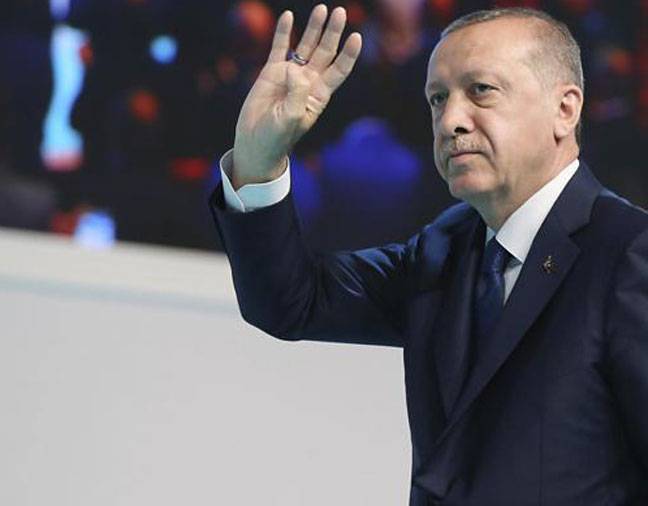ISTANBUL - Turkey slashed its growth projections and ramped up inflation predictions on Thursday, winning praise for a more realistic approach towards its embattled economy but disappointing those urging tough reforms.
The medium-term forecasts were unveiled by Finance Minister Berat Albayrak -- the son-in-law of President Recep Tayyip Erdogan -- just over a month after a crash in the value of the lira brought Turkey to the brink of economic crisis.
Albayrak indicated that Turkey needed to tighten its belt after several years of high growth, which peaked at 7.4 percent in 2017, saying the next period needed to be based on the three principles of "balancing, discipline and change".
He projected the economy would expand by just 3.8 percent in 2018 and then an even slower 2.3 percent next year.
Inflation, meanwhile, would balloon to 20.8 percent at the end of this year, dropping only slightly to 15.9 percent in 2019.
The forecasts were more optimistic for 2020 and 2021, with growth expected at 3.5 percent and 5.0 percent respectively, while inflation was predicted to dip to a single digit 9.8 percent in 2020 then 6.0 percent the following year.
By coincidence, the projections were published on the same day as the OECD's new interim economic outlook, which struck an even more pessimistic note by predicting Turkey's growth at 3.2 percent this year and only 0.5 percent in 2019.
It cautioned that "downside risks to growth remain if confidence in economic policy is not restored, or if domestic financial stability tensions increase as the result of higher debt service burdens".
Nora Neuteboom, economist at ABN Amro, said Albayrak had given an "honest" assessment on inflation in line with her bank's own projection but was "still quite ambitious" on growth even with the downscaled targets.
"Many banks and rating agencies expect Turkey to face a recession in 2019," she told AFP.
She said Albayrak had shown "he understands the fundamental issues that are at play" but called for a "broad reform plan" to tackle key challenges like low productivity and a rigid labour market.
Increasing economic prosperity has been one of the pillars of Erdogan's popularity in his more than 15 years in power, with the country seeing impressive growth rates in consecutive years.
However economists have warned that the all-out push for growth has led to a potentially dangerous overheating, with inflation rampant, the currency account deficit widening and doubts over the health of the banking system.
These fault lines were exposed in August when a diplomatic spat with the United States caused a crash in the value of the lira, sparking fears of a full-blown economic crisis.
Tensions eased a little last week when the central bank agreed a 625 basis points interest rate hike to battle inflation, although doubts remain over the bank's independence.
The presentation by Albayrak at Istanbul's Ottoman-era Dolmabahce Palace was considerably more assured than a similar appearance last month at the peak of the currency crisis, where he was drenched in sweat on a sweltering day as the lira bled value by the minute.
On Thursday he vowed a programme to battle inflation and also said that in 2019 projects whose tender had not been carried out would be "suspended".
Erdogan has embarked on a string of costly projects to modernise Turkey's infrastructure and a major question will be whether he pushes ahead with the most ambitious of them all -- a new shipping canal for Istanbul.
Economists at QNB Finansbank in Istanbul said that the projections were promising as "they indicate that government recognises the need to give up on the ambitious growth targets to stabilise the economy". But they said it remains to be seen how resolute the government will be in delivering the rebalancing promised by Albayrak.
"They talked the talk and it remains to be seen whether they will walk the walk."
Markets gave a lukewarm welcome to Albayrak's announcements, with the lira trading slightly lower against the dollar at 6.27, a loss of 0.4 percent in value on the day.






